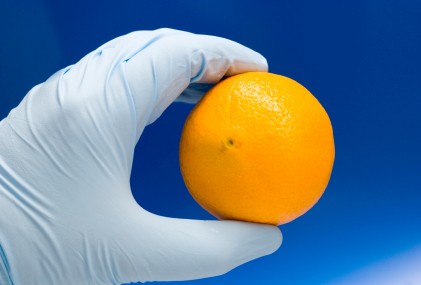Ethical & Legal IssuesHumans have been genetically modifying foods since before “modern science” even existed. Some of the first farmers chose to only grow crops which could protect against pesticides and diseases. Eventually, plants were crossed and mixed in order to make better ones. Naturally, this was our human instinct. Though GM crops produce food for the world, pharmaceuticals, enhances nutrition, and increases productivity, it is still highlighted in public concerns as unhealthy and having too many risks.  |
Ethical Issues: In order to determine the ethics of GM foods it is important to weigh its risks and benefits while also thinking about safety. GM foods do have potential risks to wildlife such as threatening biodiversity, causing a famine if something goes wrong, and genes may find their way into organisms we don’t want them to. It is also feared that people may have an allergic reaction due to the fact that the GM foods are not labeled in a way that could fully inform a person. Some foods may even be accidentally placed in the human food supply if an accidental sale of unapproved GM foods were sold. Lastly, there are a few potential socio-economic effects. For example, small scale farmers may be impacted in a negative way. The patent protection may effect the GM foods that could potentially enter developing countries. However, there are many proven benefits of GM foods. Agriculture productivity increases as the risk of crop failure becomes smaller. Other benefits are the longer shelf lives which will protect against wasting food, less land needed to grow crops, and the elimination of toxins being exposed to crops since pesticide and disease resistance can be engineered into the crops. They also offer huge benefits to our health. It may remove genes that cause allergies, enhance nutritional value, produce healthier foods by eliminating fats, and allowing quicker vaccinations of large populations. It is extremely important to have GM foods in our lives while also warning people of its possible side effects. It is important that everyone may recognize the risks but also be aware of the great opportunities that GM foods has to offer.
Legal Issues: As of today, there is no law which states that genetically modified foods must be labeled. Although labeling would be more appealing to consumers, it is not mandatory. A few countries, however, have banned GM foods. As a result, they are suffering huge consequences. Although there are no laws against GM foods in America, there have certainly been concerns. The biggest issue is about labeling. Several arguments have been made about society having the right to know whether foods have in fact been genetically modified. A legislation stating that all genetically modified foods must be labeled was passed by the European Parliament in 1997. Japan has followed in their footsteps. This continually puts more and more pressure on the United States to do the same. |
|
 |
||